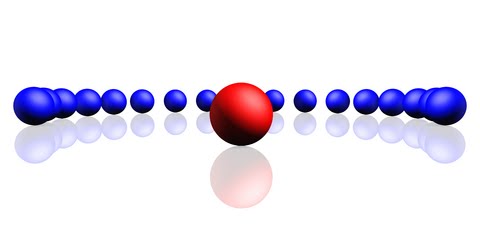We carry our own particular burden of chronic stress as though we had no choice, like a sack of rocks we cannot drop, a drag on our progress towards happiness and well-being. The scientific term for that burden is "allostatic load," the level of continual harm from chronic stress on mind, body and spirit. We come into life equipped, psychobiospiritually, to bounce back from what is called acute stress without long-term consequences to our health and well-being. Acute stress is a brief interval of readiness to act -- what happens when we recognize danger or threat and marshall all our energy to respond to it. Acute stress passes after we take action, and then relax back into balance. Chronic stress is the weight of stressful thinking that sustains a constant state of alert and alarm with no relief. Chronic stress creates exhaustion of mind, body, and spirit and depletes our resources so that when a new incident occurs, an acute stress situation, we have diminished our ability to respond to it appropriately.
My good friend and colleague, Dr. William F. Pettit, Jr., created a chart to illustrate this vividly. (Click to enlarge.) Each of the lines in the chart represents a different level of understanding of how stress is created and sustained, a different setting of an individual's allostatic load. The higher the level of understanding, the quicker we bounce back from new stressors, incidents of alarm. The lower our starting point, the heavier our allostatic load, the more prolonged our recovery from stressful situations or ideas. For those who bear a heavy allostatic load, recovery is painfully slow, and often they are unable to return even to the low level of well-being they experienced before the new stress occurred.
Our understanding of how stress works within our own psyches determines whether life stressors are experienced as a quick climb over bumps on a smooth path, or a slow slog through deepening quicksand. It doesn't matter what the content of the stressor is, since every person's thinking about what is serious in life is different. One person's catastophe is another person's ho-hum. It only matters what we do with our thinking about that content.
So, what can lift our allostatic load, raise our spirits, help us live stress-free? The antidote is our own resiliency, set free from habits of dysfunctional thinking. We are naturally buoyant. We are innately stress-free. We can tie ourselves to our sack of rocks and sink, but as soon as we untether the rocks, we rise and float. Our allostatic load, that bag of rocks, is the stuff we've innocently made up and ruminated about -- chosen to carry -- without recognizing what we were doing.
At this point, someone will certainly think, "What about people in horrible, horrible circumstances, like war and poverty and terminal illness? Are they making it up? How could they not be stressed all the time?" Of course no one is making up circumstances; life happens beyond our control. Still, we can all see for ourselves that people's responses to circumstances are enormously variable. People in horrible circumstances are not all stressed, and those who are stressed are not all stressed all the time. The variability has to do with each person's own capacity to reconnect to resiliency, to allow their minds to quiet and their spirits to lift and their wisdom to guide them.
In the words of the late philosopher Sydney Banks, "Let your negative thoughts go. They are nothing more than passing thoughts. You are then on your way to finding the peace of mind you seek, having healthier feelings for yourself and for others."


No comments:
Post a Comment